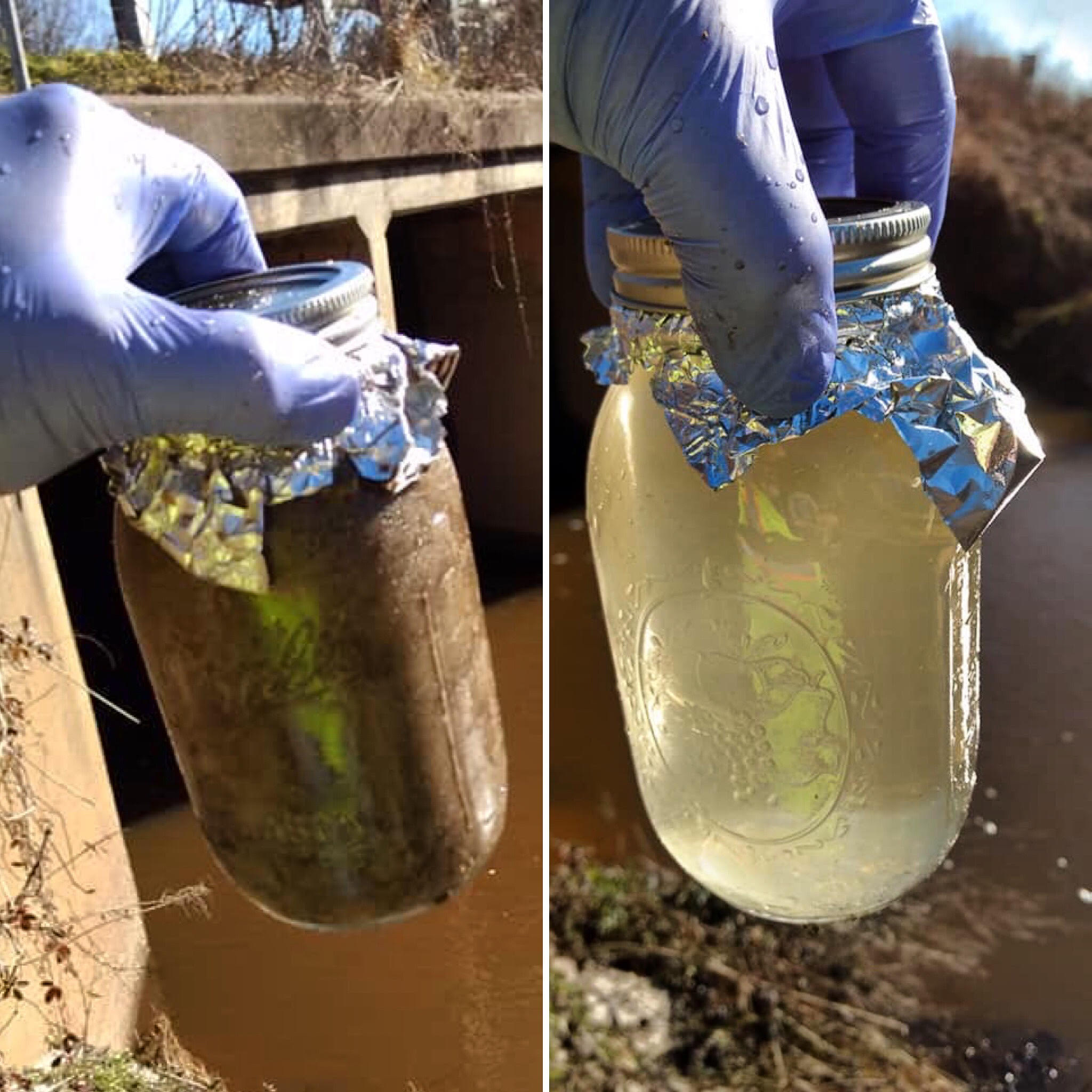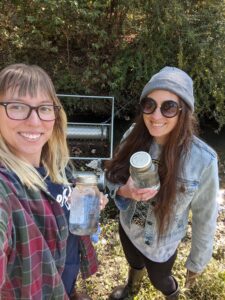Microplastics Study Measures Impact On Waterways

Measuring microplastics in North Carolina’s waterways is no small job. In collaboration with Waterkeepers Carolina, Coastal Carolina Riverwatch has launched a two-year study to collect surface water and sediment samples along the New River. This will help us to better understand the volume of microplastics and macroplastic pollution in North Carolina’s streams, rivers, lakes, and bays.
Microplastics are small plastic pieces less than five millimeters long which can be harmful to waterways and aquatic life. As plastics break down over time into microplastics, they are an environmental and public health issue. Microplastics are so small that they are not picked up by water filtration and are often eaten by fish, birds, and other aquatic animals, negatively impacting their health.
The study “Improving Human and Ecosystem Health through Microplastic Reduction” launched in February 2022 as a collaborative project across 10 nonprofit environmental organizations. To get baseline data, 15 Riverkeepers in North and South Carolina collected two surface water samples and sediment samples that were analyzed for microplastics.
Coastal Carolina Riverwatch has picked a stream in Jacksonville, NC that we will continue to monitor through bi-monthly samples that will be collected through 2023. In addition to the microplastic sampling, we are also working with the City of Jacksonville to install and maintain a Trash Trout that collects debris flowing down the stream. The City empties the Trash trout every couple of weeks and records what has been collected. The data will be used to assess the most common source of pollution and encourage changes in plastic use in the city.
 Current Waterkeeper, Riley Lewis, and previous Waterkeeper, Becca Drohan, collecting data by the Jacksonville Trash Trout.
Current Waterkeeper, Riley Lewis, and previous Waterkeeper, Becca Drohan, collecting data by the Jacksonville Trash Trout.
The sad reality is that plastics are everywhere. Plastic particles and pollution flow from our cities to our rivers and our lakes to our oceans. Every waterway in North Carolina is impacted by plastic pollution. This study will measure how big of a problem microplastics pose and will lead to plastic pollution reduction policies and practices.
Project partners UNC-Wilmington, Duke Environmental Law and Policy Clinic, and Plastic Ocean Project will collaborate to get the best scientific data for this project.
See what Coastal Carolina Riverwatch and others are doing to prevent plastic pollution by attending our North Carolina Marine Debris Symposium.
In the News:
Riverkeepers are growing more concerned over microplastics in waterways.
Groups are setting traps to reduce plastics in NC waters
For more information contact Riley Lewis, White Oak Waterkeeper
Waterkeeper@coastalcarolinariverwatch.org
